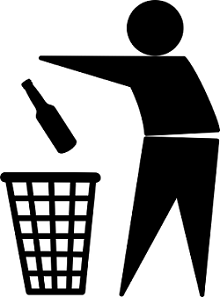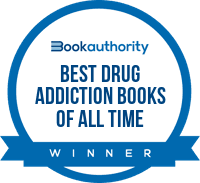Quitting drinking has a multitude of benefits, whether you've merely misused the booze or you're a full-blown alcoholic. But putting down the bottle rarely pays off immediately. You'll know this if you've ever had a hangover. However, in the longer-term, quitting alcohol may well be the best thing you ever did.
Acute Alcohol Withdrawal
Everyone will suffer alcohol withdrawal symptoms. The severity depends on how much you drank and how often. Milder forms of alcohol withdrawal include insomnia and  shakiness. Severe alcohol withdrawal can involve sweats, an elevated heart-rate, and hallucinations. If you're in the latter category, do a medically-assisted detox.
shakiness. Severe alcohol withdrawal can involve sweats, an elevated heart-rate, and hallucinations. If you're in the latter category, do a medically-assisted detox.
Quitting alcohol will likely leave you with emotional ups-and-downs. Frequent drinkers may feel a sense of dread upon being sober for the first time. Everyone is likely to have some anxiety, from mild hesitation to panic. Acute alcohol withdrawal symptoms only last for about a week, and can be eased with exercise, B vitamins, fresh air, and healthy food.
The Early Days of Quitting Alcohol
Once the initial withdrawal is over, you will likely experience secondary withdrawal symptoms. Your sleep may still be disrupted for a while, although you'll still wake feeling much fresher than if you'd been drinking. You may crave alcohol since your body is used to its regular dose of booze.
Alcohol is actually a depressant and once it's fully out of your system, you'll experience the world at full-throttle, whatever that means for you. If you're lucky, you may enjoy the elation of new-found freedom: the 'pink cloud' effect. Of course, quitting substances that change how you feel means you have to deal with your genuine feelings, good or bad.
Life After Alcohol
Apart from having to deal with new-found feelings, there may be psychological and practical hurdles to overcome. How will you socialise sober? How will you cope with stress and  sadness now that you're no longer drowning your sorrows?
sadness now that you're no longer drowning your sorrows?
How you choose to deal with these issues will largely affect how happy you feel that you've quit drinking. Instead of regretting not being able to hide behind a bottle, why not celebrate your clear-headed strength? Instead of being bored, use the time you've saved on boozing or hangovers to build a fulfilling life.
A New Life Sober
What you make of life after quitting alcohol is entirely up to you. Being positive about sobriety makes all the difference. If you see learning to live sober as a challenge rather than a pain in the posterior, you'll feel empowered about life without booze.
Being sober may not always be a picnic, but neither is drinking, which has many drawbacks. So, instead of looking at things you've lost, look at what you've gained. If you genuinely make the decision to make quitting alcohol the best thing you ever did, then it will be. How much you enjoy sobriety is ultimately down to you.
by Beth Burgess, Therapist and award-winning author of The Recovery Formula, The Happy Addict, and Instant Wisdom.




